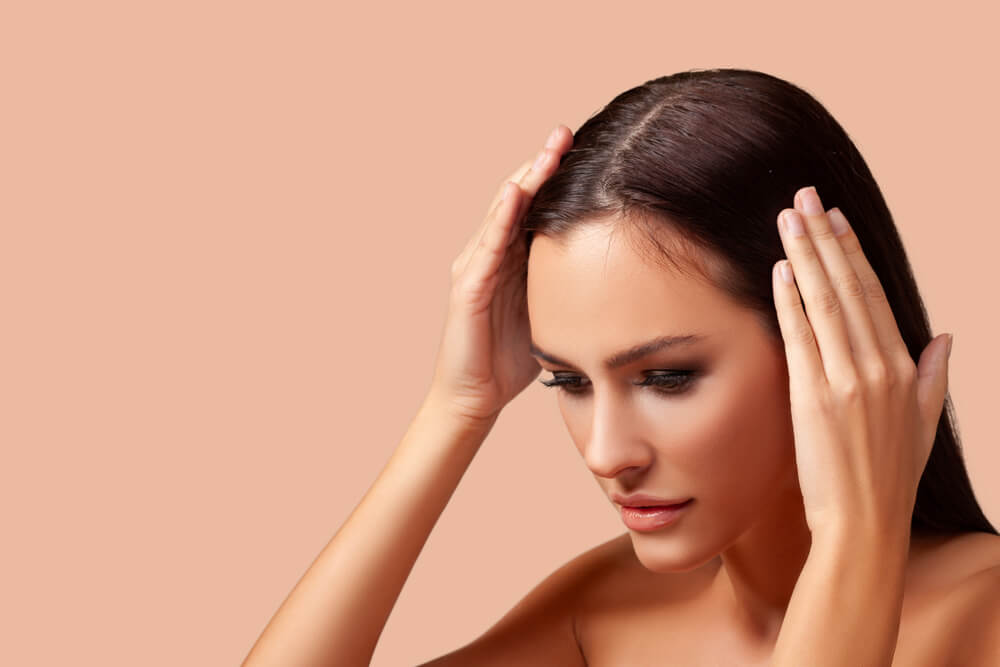Hair Care
Tips for a Healthy Scalp
A healthy scalp is essential for healthy-looking hair, and more and more people are now realizing this. No matter how many different hair care products and treatments you may apply, the only way to achieve truly luscious locks is by maintaining a healthy scalp.
So, what does scalp care actually involve, and how do you know if your scalp needs some extra attention? Read on as Nubi explains.
Do You Have a Healthy Scalp?
There are a number of different scalp issues out there, each caused by various factors. Some of the most common signs of your scalp crying out for some help are:
- Dryness and itching
- Irritation
- Flakiness
- Hair loss
- Oiliness
- Scalp acne
Basically, if you’ve been experiencing any sort of problem with your scalp, then this means that your scalp could do with some extra care.
Why exactly is it so important to keep your scalp healthy?
Because the health of your scalp will directly influence the health of your hair. If you have an unhealthy scalp, then not only will you have to deal with the above symptoms, but you could also end up experiencing rough, lackluster, and brittle locks.
So, what do you need to do to achieve a healthy scalp? Let’s take a look at some of the steps that you should be taking:
Keep Your Scalp Clean…But Don’t Wash it Too Often
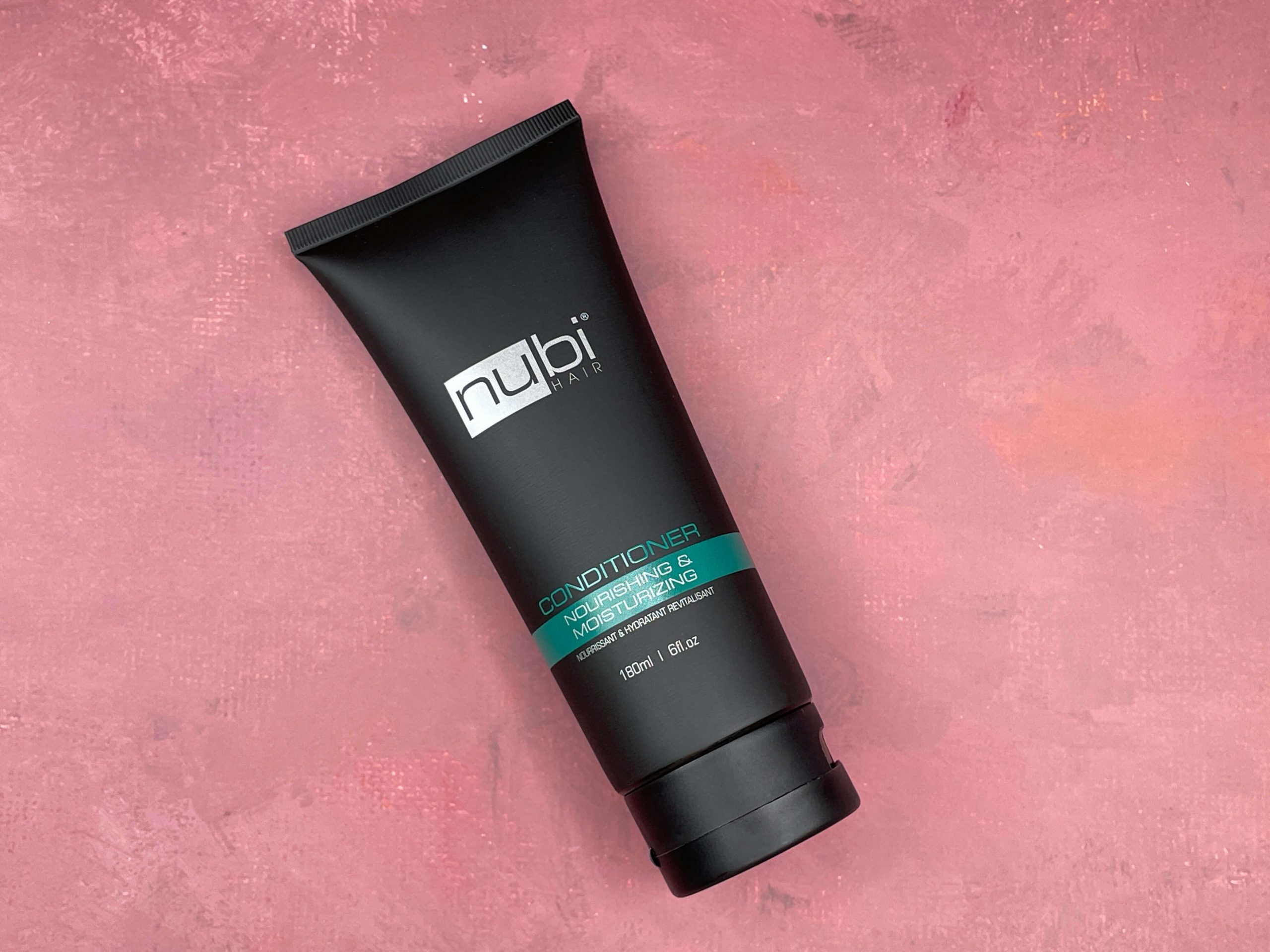
Just like with the skin on your face and body, it’s so important to keep your scalp clean if you want it to feel healthy. Everything from oil and dirt to product residue and environmental impurities quickly builds up on the scalp. Once this happens, the scalp is left feeling irritated. Hair growth is impeded while bacteria and fungus thrive, which then leads to dandruff, itching, and a whole host of other problems.
So, essentially, a healthy scalp is a clean scalp. However, having said that, shampooing your scalp and hair too often can also spell trouble. Overwashing your hair will strip away all of the natural oils that your scalp produces. This will then cause the scalp to increase the amount of oil that it produces each day, which will leave your hair looking greasy.
How often should you be washing your hair?
For the most part, three times a week is sufficient. However, if your scalp is already naturally oily, then you may need to slightly increase this until you have things back in balance. Don’t forget to apply a conditioner to your locks once you’re done shampooing, but keep this away from your scalp to prevent product buildup.
Use Silicone-Free Hair Products
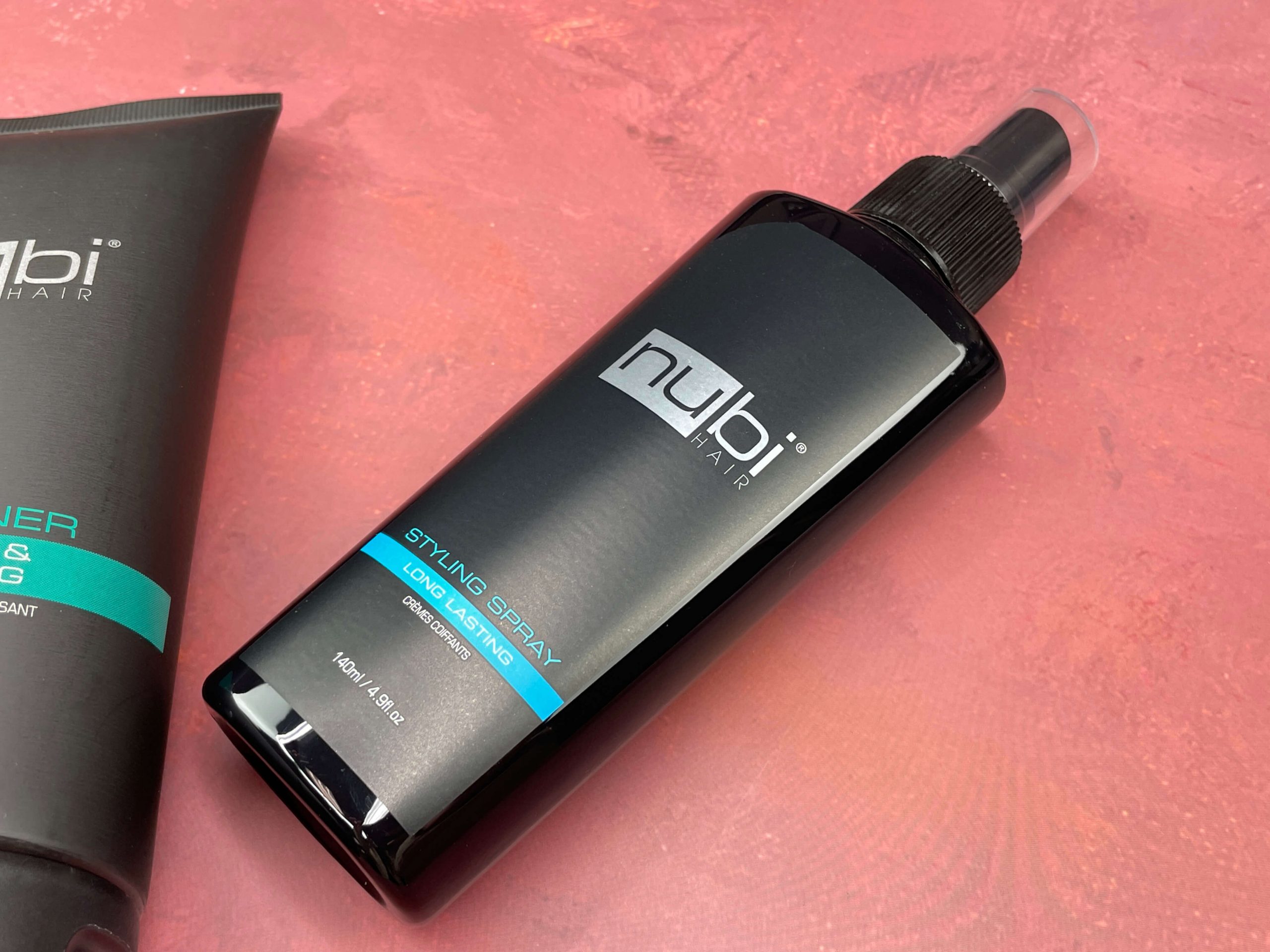
As we mentioned above, product buildup is bad news for your scalp. Regularly shampooing your hair will help to stop this buildup from causing too many problems but, ideally, you should also be trying to prevent product residue from building up on your scalp in the first place.
How? By paying attention to the ingredients that you’re applying to your scalp. One of the biggest culprits for causing buildup is silicone. It’s found in so many hair care products because of how it coats the hair and leaves it feeling smooth and silky. However, silicones are also infamous for how they strip the strands of natural oils, doing the same to the scalp too.
To avoid this, go for silicone-free products whenever possible, with the Nubi Styling Spray being a great example. Styling sprays commonly contain silicone but this formula is free of them. Instead, it will help to set your style in place without imparting any harmful ingredients to your scalp.
Exfoliate Your Scalp
If you already regularly cleanse and exfoliate your skin, then you’ll understand just how important each of these steps is when it comes to keeping your complexion healthy. Well, the same applies to your scalp too. Shampooing it a few times a week will help to keep the surface clean but exfoliation is necessary as well to pull out any impurities that have worked their way deeper into the scalp.
How should you exfoliate your scalp?
There are a variety of scalp exfoliants out there. From scalp scrubs to exfoliating masks, these will help to keep your hair follicles clear. This then encourages a healthy scalp while also leaving your hair feeling thicker and fuller in the long run.
Massage Your Scalp
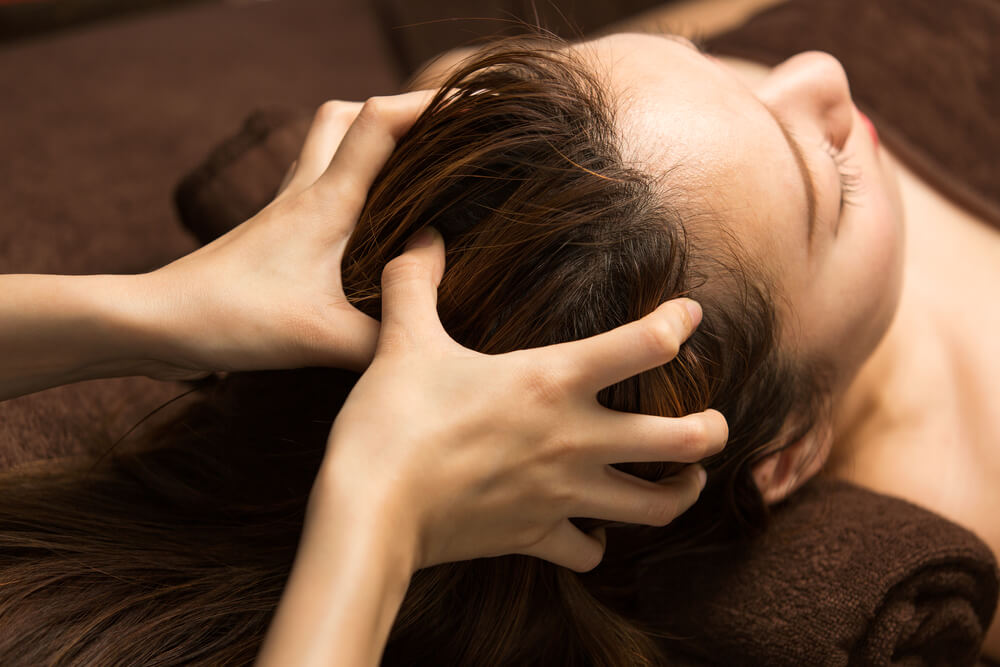
Another way to maintain a healthy scalp is to regularly massage it. Not only does this feel incredibly relaxing, but it’s also fantastic for boosting blood circulation in the scalp. Your blood carries nutrients and oxygen to your scalp and hair roots, meaning that the more blood that’s flowing through the area, the healthier your scalp and roots will feel.
Scalp massages are so easy to carry out. You’ll need to use the fingertips of both of your hands for the best results. Simply move them in small circles across your scalp, ensuring that you cover all parts. Do this for about five minutes each day, using a medium amount of pressure, and your scalp will soon feel all the better for it.
Protect Your Scalp From the Sun

Although your scalp is covered by your hair, it’s still highly susceptible to sun damage. When it’s exposed to UV rays, it can end up red, inflamed, and itchy. The thinner your hair, the more prone your scalp will be to sun damage.
So, if you want a healthy scalp, sun protection is vital. One way to do this is with a spray-on sunscreen designed for use on the scalp. However, the downside to this is that it can contribute to product buildup on the scalp, which may lead to you washing your hair more often than you should.
Another option would be to keep your scalp protected by wearing a hat when you’re in the sun. This will form a physical barrier between your scalp and the sun’s UV rays, preventing them from penetrating through your hair and damaging your scalp.
De-Stress

Did you know that stress can affect how healthy your scalp looks and feels?
It all comes down to how stress triggers the body into releasing certain hormones. These hormones interfere with the natural bacteria on the scalp, altering pH levels and throwing things out of whack. This then leads to a variety of scalp-related issues, including dandruff and scalp acne.
This makes stress relief a big part of keeping your scalp looking and feeling healthy. Of course, this is often far easier said than done, but even highly stressful moments can be diffused when you use the right techniques. Whether this may involve releasing tension with a quick workout, listening to some calming music, or jotting down your worries in a journal, try out as many different stress relief methods as you can in order to find the techniques that work best for you.
Eat More Probiotics
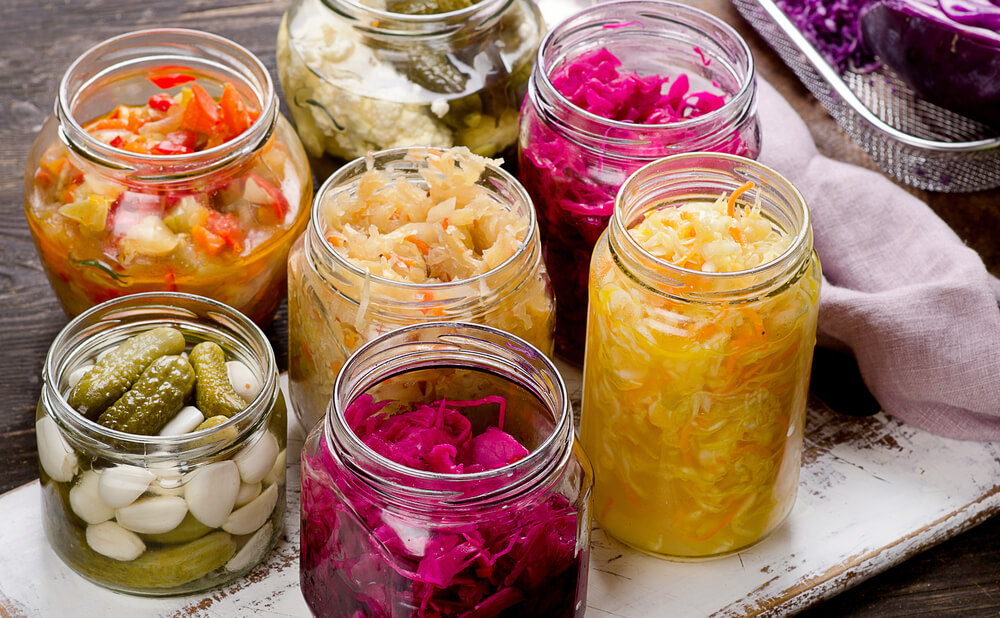
While there are plenty of products that you could buy that are designed for promoting a healthy scalp, paying attention to the ingredients that you put into your body is just as important. After all, you are what you eat, meaning that your scalp will be directly impacted by your diet.
Chances are that you’re already familiar with the foods that you should be eating more of. Fresh fruits and vegetables are packed with vitamins and antioxidants that your scalp will love. Foods containing omega fatty acids, such as fish, will help to keep your scalp moisturized from within, while lean proteins will support hair growth.
However, there’s one other type of food that can be extremely beneficial to scalp health; probiotics. There is a huge amount of research out there confirming how probiotics can help to boost ceramide production in the skin, and the scalp is made up of skin. Ceramides help with moisture retention while also keeping acne-causing bacteria at bay, making them great for maintaining a healthy scalp.
Studies also suggest that probiotics can help the skin’s pH to feel balanced while reducing the appearance of sun damage and oxidative stress, making it well worth adding more probiotics to your diet.
Ideally, try to consume a variety of probiotic-rich foods. Everything from yogurt and kefir to kimchi and kombucha is packed with probiotics, and there are so many other options out there too. Incorporate as many as possible into your diet and you should notice an improvement in the appearance of both your scalp as well as the rest of your skin.
Try Hair Vitamins
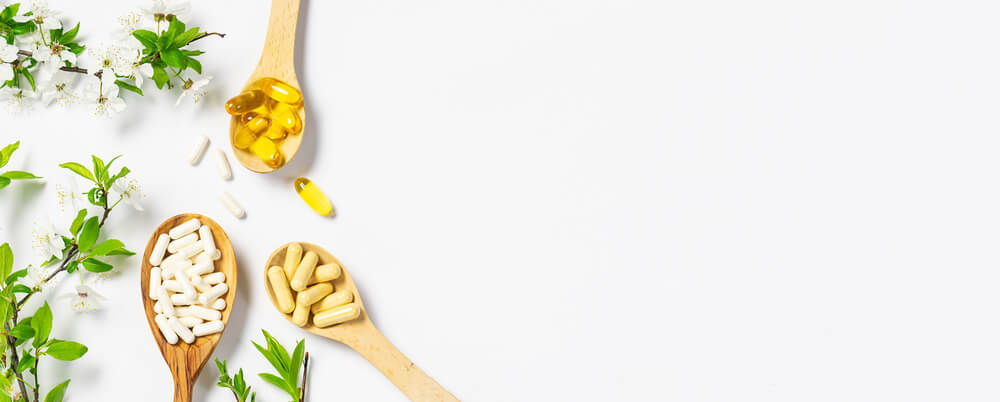
If you find yourself struggling to consume enough fresh fruits and vegetables, then this means that your body will be lacking in certain vitamins. One way to make up for this is by taking vitamins as supplements.
Which vitamins do you need for a healthy scalp?
All of them will help, but some of the most important include:
- Biotin
- Vitamin C
- Vitamin A
- B complex
Certain minerals, such as zinc and selenium, are also essential.
There are plenty of hair and scalp supplements out there that contain this full range. However, don’t forget that beauty supplements aren’t regulated as a drug by the FDA. Instead, they adhere to food regulations, which aren’t as stringent as drug regulations.
So, if you decide to give a hair supplement a try, make sure that you find one that contains high-quality ingredients. If you see anything on the ingredient list that you don’t recognize or you’re unsure of, spend a bit of time researching them before putting them into your body. Reading product reviews is also a great way to determine how well a supplement is going to work. These will also let you know more about the side effects that others have experienced from that supplement. Side effects can sometimes occur for a few days after taking a new supplement as the body needs a bit of time to adjust.
Summary
When it comes down to it, a healthy scalp is a scalp that looks and feels absolutely normal. Therefore, if you’re experiencing any issues at all with your scalp, then this means that there’s something affecting its health and you’ll need to take the necessary steps to rectify this. Whether this means adjusting your hair-washing routine, exfoliating your scalp, or altering your diet, follow the tips above and your scalp, along with your hair, will soon start to feel so much healthier.
Click here to browse Nubi’s bestselling hair care and styling products.



